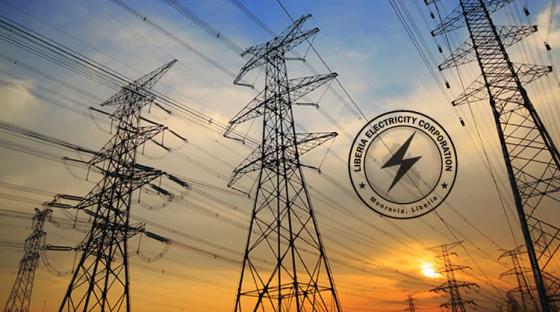Liberia: LERC Makes Major Cut in Electricity Tariffs

The Liberia Electricity Regulatory Commission (LERC) Board Chairman, Dr. Lawrence Sekajipo has announced major reductions in electricity tariffs beginning January 1, 2022.
He said the tariff decision is the result of rigorous technical analyses of Liberia Electricity Corporation cost and other parameters, thereby ensuring that only prudent costs are passed onto customers as the end-user tariff.
“As far as tariffs are concerned, our responsibility under the 2015 Electricity Law is to set tariffs that enable an efficient service provider to recover its cost, make a reasonable return, and provide incentives for continuous technical and economic improvements in the system,” Dr. Sekajipo added.
Going forward, Dr. Sekajipo, said the new tariff will enable social customers, whose monthly energy consumption is either less than or equal to 50kWh shall pay US$0.15, which represents a 32% reduction from the current price of US$0.22.
By this decision, he said, the Board of Commissioners has increased the threshold of social tariff from 20kWh to 50kWh which will allow more people to benefit from this category.
Dr. Sekajipo also revealed that for prepaid residential customers, they will also pay US$0.24 per kilowatt-hour, which represents a 31% reduction from the current price of US$0.35 cents and attracts a monthly fixed charge of US$2.48 to cover a portion of LEC’s fixed costs.
While postpaid residential customers-is set at US$0.24 cents per kilowatt, which also represents a 31% reduction from the current price of US$0.35 cents per kilowatt hour and attracts a monthly fixed charge of US$4.47 to cover a portion of LEC’s fixed costs.
For prepaid non-residential customers, according to the LERC Board chairman, they are to pay US$0.22 cents per kilowatt-hour, which also represents a 37% reduction from the current price of US$0.35 cents.
He further said that postpaid commercial customers-- is set at US$0.22 cents per kilowatt-hour, which represents a 37% reduction from the current price of US$0.35 cents and attracts a monthly fixed charge of US$12 to also cover a portion of LEC’s fixed cost.
However, for medium voltage customers, Dr. Sekajipo said the price is set at US$0.19 per kilowatt-hour. This tariff category, he said, consists of customers supplied at the 22kV and 33kV voltage levels, which represents a 46% reduction from the current price of US$0.35 per kilowatt-hour.
Dr. Sekajipo continued that this category shall also pay a monthly fixed charge of $50 to cover a portion of LEC’s fixed cost.
“It is the Commission’s expectation that this exercise and other ongoing initiatives would spur LEC to increase customer’s connections and improve reliability and that the new prices would encourage good customer behavior, thereby ensuring the sustainability of the electricity supply service,” he added.
He said the cut would provide relief to domestic consumers, especially the poor, already reeling under financial problems due to the pandemic. The law “mandates the LERC to, among other things, approve and set new electricity tariffs for companies operating within the electricity supply market of Liberia.”
According to Dr. Sekajipo, this is the first time that a tariff structure has been set based on the cost of transmission, generation and distribution of electricity, adding that “previous tariffs were all political”.
He observed that Liberia has one of the highest electricity tariffs in the world and only a small percentage of its population has access to electricity. Also speaking, Mines and Energy Minister, Gesler Murray, described electricity as a “bloodline of any economy”, welcoming the reduction of the tariff but urging residents to stop the practice of power theft.
He said unlike neighboring Ivory Coast, which has 94% of its population having access to electricity, only 12% of Liberia’s population has access to electricity today. Minister Murray said that his Ministry is a policy arm for the country’s energy sector. And he said the Mines and Energy Ministry has now aligned its policy for green energy by upscaling hydropower and other forms of energy and downscaling fossil fuels.
For his part, the LEC Board Chairman, Monie R. Captan, said with the announcement of the new tariffs, “lots of Liberians will feel a sigh of relief”.
He said the over 30% reduction “is significant and now people should have no reason to steal current.”
Captan further said that President George Manneh Weah has given them a mandate “to go after” all those involved in power theft including senior government officials. He said beginning Monday, December 13, a hotline will be published on the LEC social media page for people to report power theft and other complaints via text messages in their respective communities, in order for prompt actions to be taken against those involved.
The LEC Board Chairman emphasized that the time has come to set some examples on people in high and low places who are constantly involved in stealing current, something that has caused the LEC to suffer 60% commercial losses and 12% technical losses, amounting to millions of US dollars every year.
“We have to stand up against this,” Mr. Captan said, making a passionate appeal to the public to use the hotline to tip-off the LEC authorities on people involved in power theft.
According to him, had it not been because of power theft, the new reduced electricity tariff could have gone down even further, below 30%. It can be recalled that LEC recently submitted an application for Tariff Review in adherence to Section 13.7 of the 2015 ELL, the Electricity Tariff Regulations of May 4, 2021, and LERC’s Administrative Procedure Regulations of September 2020.
In March 2021, LERC provisionally approved a request from LEC to implement an “Incentive Framework” for large electricity consumers using high security pre-paid meters. The proposed incentive level provides a 22% discount for large customers using the high-security prepaid meters, which equate to around US$0.27/kWh.

